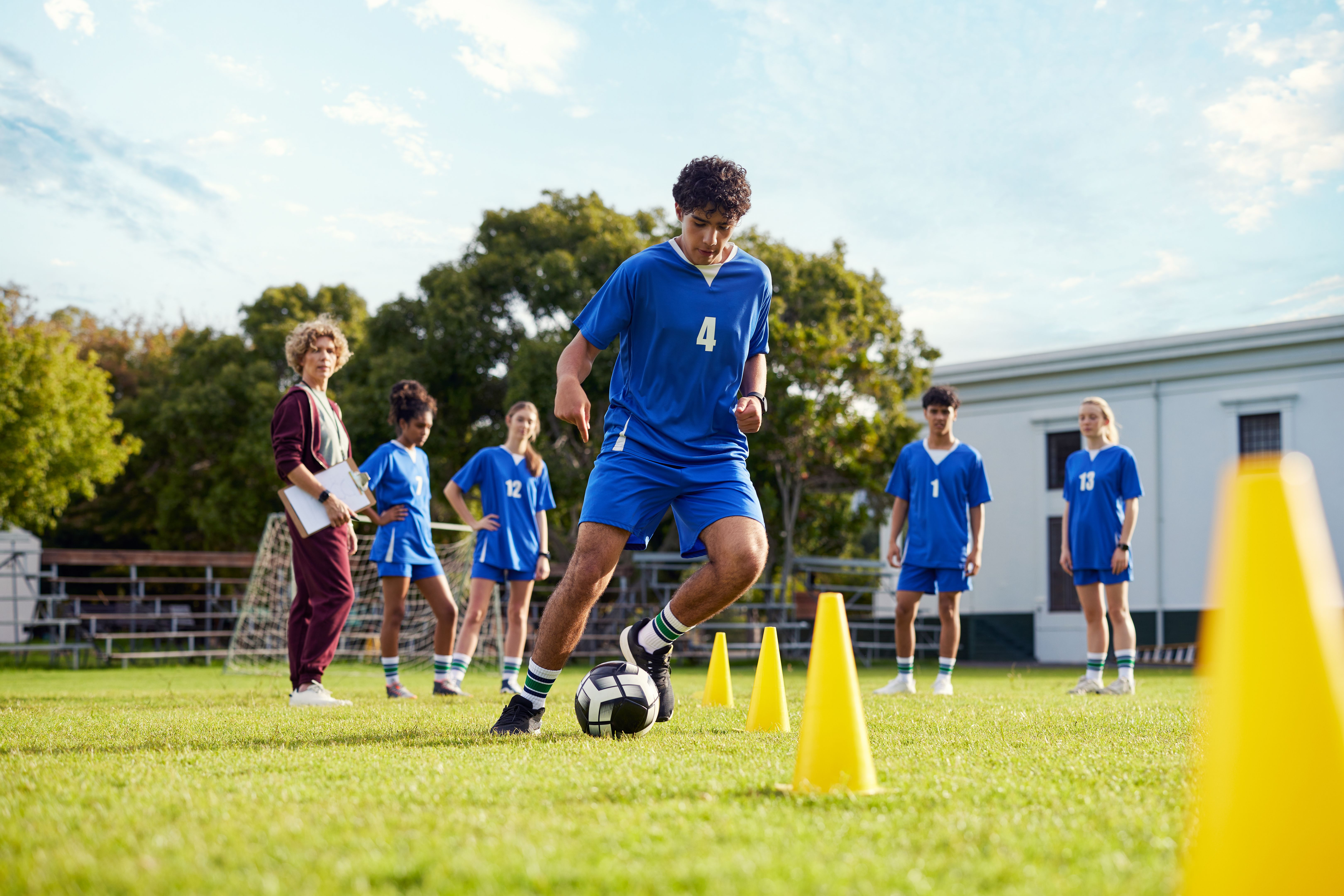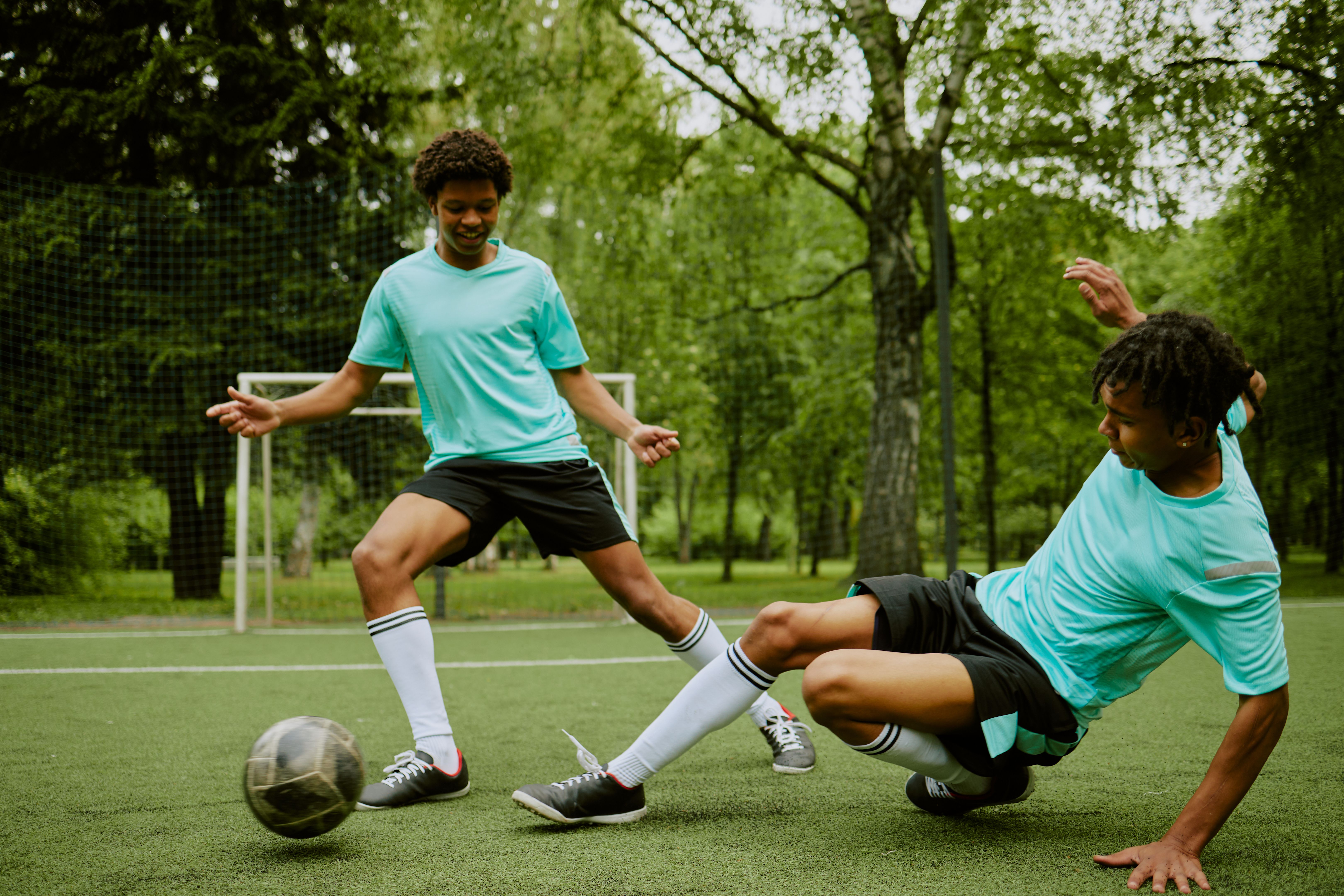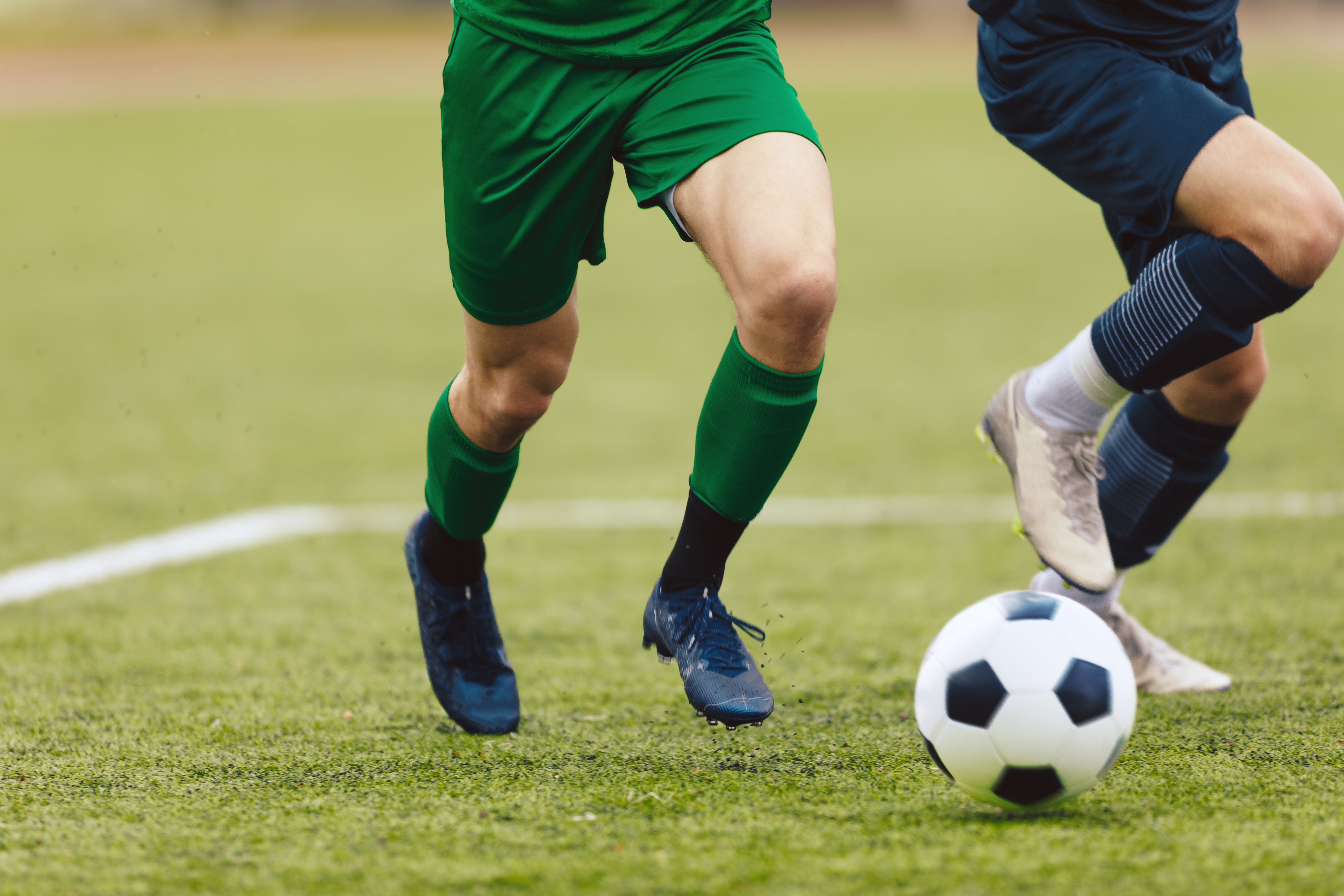Mastering 1v1 Skills: A Key to Soccer Success
Understanding the Importance of 1v1 Skills
In the world of soccer, one-on-one skills are crucial for any player aiming to elevate their game. Whether you are an attacking forward or a defensive stalwart, mastering the art of 1v1 situations can be the difference between success and failure on the field. These skills not only enhance individual performance but also significantly contribute to a team's overall effectiveness.
1v1 skills enable players to navigate past opponents with ease, creating scoring opportunities and disrupting defensive setups. Additionally, these skills allow defenders to effectively neutralize attacking threats, maintaining a strong defensive line. Thus, focusing on improving one-on-one abilities is essential for any soccer enthusiast looking to make a mark.

Dribbling: The Foundation of 1v1 Mastery
Dribbling forms the core of effective 1v1 play. A player with exceptional dribbling skills can maneuver through tight spaces, maintain possession under pressure, and initiate attacking plays. To enhance your dribbling skills, practice using different parts of your foot and work on maintaining close control at various speeds.
Incorporate drills that emphasize agility and quick direction changes. Cone drills and zig-zag dribbling are excellent exercises to improve these aspects. Remember to focus on both your dominant and non-dominant foot to ensure versatility during matches.

Defensive Techniques in 1v1 Situations
While offensive players focus on dribbling, defenders must master techniques to counter these moves. Anticipating an opponent's next move is critical in 1v1 defense. By carefully observing body language and positioning, defenders can predict and intercept plays effectively.
Key defensive skills include jockeying, timing tackles correctly, and maintaining a low center of gravity. Regular practice with a partner can help in refining these techniques, enabling defenders to hold their ground against even the most skilled attackers.

Building Confidence and Composure
Confidence is an underrated yet vital aspect of mastering 1v1 skills. Believing in your abilities can significantly impact your performance on the field. To build confidence, simulate game-like situations during practice sessions and focus on learning from mistakes without getting discouraged.
Maintaining composure under pressure is equally important. By staying calm, players can make smarter decisions and execute techniques more effectively. Visualization techniques and mental conditioning can aid in developing this composure.
Implementing 1v1 Skills in Game Scenarios
Once you have honed your one-on-one skills, applying them in live game scenarios becomes the next step. Understanding when to attempt a dribble or when to pass is crucial in making effective decisions during a match. Awareness of your surroundings and communication with teammates can help maximize the impact of your individual skills.
Coaches often emphasize situational drills that mimic real-game conditions to prepare players for these scenarios. Practicing under realistic conditions ensures that players are ready to deploy their skills effectively when it matters most.

The Role of Coaches and Mentors
Coaches and mentors play a pivotal role in developing a player's 1v1 skills. Their insights and guidance can provide valuable feedback, helping players refine their techniques and strategies. Regular feedback sessions and video analysis are excellent tools for identifying areas for improvement.
Young players benefit immensely from having role models who demonstrate exceptional one-on-one abilities. Watching professional matches and analyzing players renowned for their 1v1 skill, such as Lionel Messi or Virgil van Dijk, can provide inspiration and practical insights into mastering these techniques.
Commitment to Continuous Improvement
Mastering 1v1 skills is an ongoing journey that requires dedication and consistent effort. Setting realistic goals and tracking progress can keep players motivated and aware of their development. Regularly updating training routines and incorporating new challenges will ensure that players continue to grow and adapt their game.
Commitment to improvement is what separates good players from great ones. By focusing on developing these critical skills, players can unlock new levels of performance, contributing significantly to their team's success.
